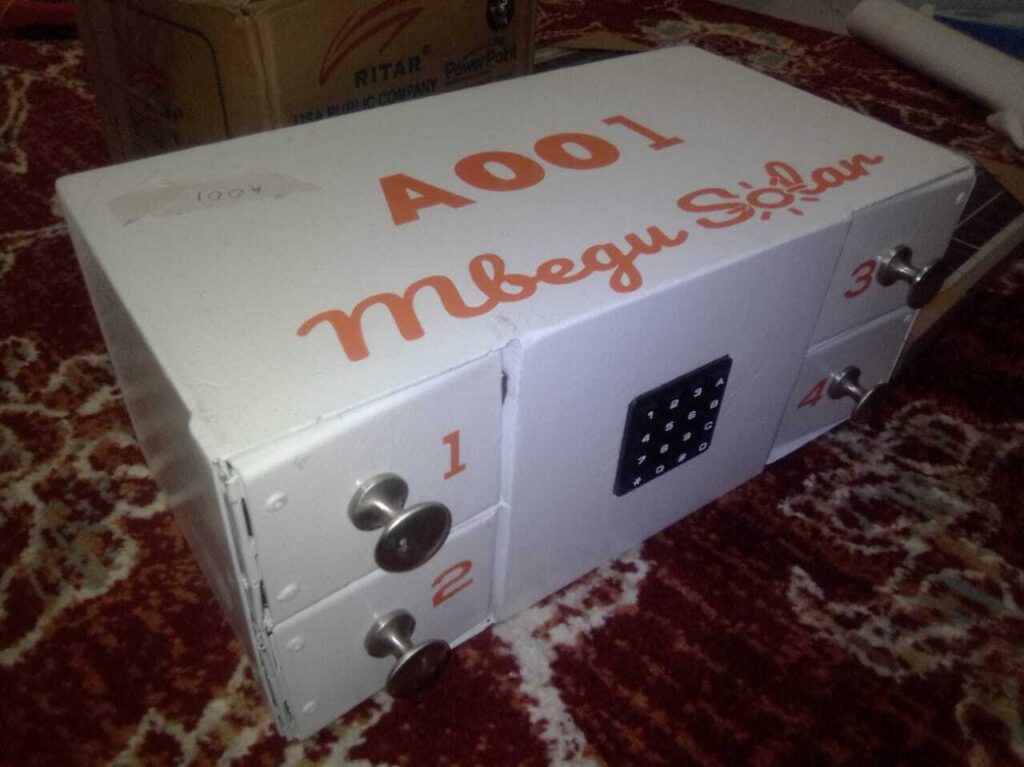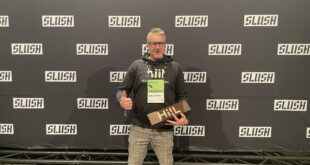Mbegu Solar AB was founded in 2020 and its team is based in Stockholm, Lund and Nairobi. They bring solar products in a completely new format to the East African market and target micro-entrepreneurs as opposed to the end consumer. Solar products are already widely available all over the world for off grid electricity, but Mbegu Solar states this is not enough, their mission is to also make them attractive.
They are a young team both in terms of age and collaboration, but a diverse one in terms of backgrounds and skill set. Founding and building a startup while the world is in the midst of two global crises (Covid-19 and Climate), here are some learnings from one of its earliest team members, Abel Valko.
You specifically target East Africa, what is behind that decision?
– There is a huge technological gap between the phones that almost everyone has and the means of charging them. People are often not connected to the grid and charge their phones at local stores where this service is offered for a small price. However, not even these businesses are always on the grid and if they are it is still highly unreliable. Outages are common and can last days and while Kenya has really ambitious plans for expanding their grid in the coming years there is unfortunately a huge distinction between connecting a region to the grid and maintaining that infrastructure.
You offer a means, for small businesspeople, to develop or start their business and employ a self financing mechanism that enables them to invest without a large starting capital. What is the target group’s alternative to Mbegu Solar?
– The current alternative is generating electricity using a diesel/kerosene/petrol generator. This is expensive, requires fuel and often maintenance, is loud and smelly, and generally a hassle. It is obviously also an issue from an environmental perspective. They could also install a full solar system, but these are often quite costly. What we want to do is let our customers increase the value of their business with minimal entry barrier and low financial commitment.

What Mbegu Solar has built is in practice a solar powered phone charging station and connected online platform. A proprietary product they developed themselves, with features such as mobile payment, automatic and secure lockers, customer digital wallet, sales analytics, etc. In the pipeline for them is to offer additional solar products and services oriented towards small businesspeople. However, they consider their unique self-financing mechanism and the station network a core asset to the company as well. These, Valko explains, can also potentially be cloned to work with other solar products or services.
What is behind your personal decision to join this company?
– I think it has to do with both an environmental consideration but also the will to have an enabling impact on these communities. What good is having phones if they can not be charged? Creating economic opportunities and making information and communication widely available is a catalyst for huge progress, and unleashing the potential of these markets will benefit not only the region but the whole world. I sometimes consider what more amazing things could be done in the world if the literally billions of people held back by such primitive issues as access to electricity could be unleashed.
Building and growing a team spread across three cities in two separate continents – these are three things Valko wish he knew a year ago:
- To recruit early, when we are only beginning to see the need for a specific competence or role. Selecting the right candidate and onboarding take a lot longer if you can’t physically meet, and building a good working relationship takes even longer.
- The work culture is certainly different. In a Swedish office we often prefer to give a lot of autonomy to people and most employees are incredibly good at taking initiative and responsibility without a second thought. This sometimes needs to be made more explicit if you work together online and from different cultural backgrounds.
- Always have a backup plan for the backup plan. The plan might fail due to a common issue, the backup plan might fail due to a manufacturing fault, and even then our Kenyan colleague may not have internet connection for half a day to notify us about it. This isn’t very surprising, I think everyone knows this should be done. But it’s one thing to know that you should do it and be able to do it effectively and most importantly efficiently without spending all of your time on planning.
Lastly, what is your perspective after coming to the end of the year 2020?
– I think I have a relatively positive outlook. I don’t believe that Corona will leave a huge lasting mark and completely alter how people live and think, but it definitely will have an effect. This is a practice round for coming global crises. It’s a wake up call that sheds light on all of the dysfunctions of international cooperation that need to be addressed if we are to deal with the looming climate crisis. I think a lot of people suddenly got a taste of how “doing your part” really works and with some work from governments, companies, and private individuals this can be expanded to climate efforts as well.
Mbegu Solar are completing their second pilot project introducing their prototype of solar-powered charging station, recently opened up a subsidiary in Kenya and are currently expanding the team both in Lund and Nairobi.
 Nordic Startup News Early Stage Startup News From The Nordics
Nordic Startup News Early Stage Startup News From The Nordics


